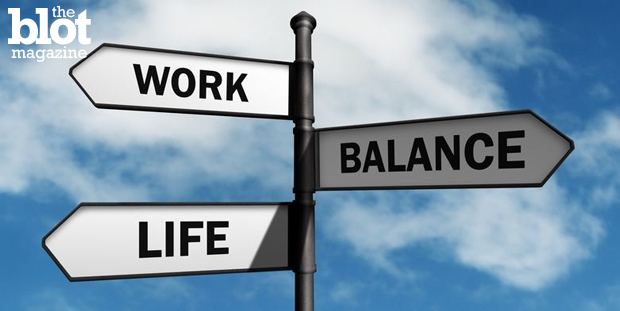
As the line between life and work continues to blur, is maintaining balance up to you — or your employer?
The concept of a work-life balance, how to achieve it and whose responsibility it is has been around for some time and is only growing in scope and significance. The advent of smartphones, e-mail and text messages has made sure the issue is not only relevant, but a cause for national debate in some countries.
The German government has proposed legislation that would ban employers from contacting their workers after business hours. There is concern in the country that the people are being overworked and overstressed now that they can be contacted by their employers at any hour of any given day. Proponents of the legislation cite increased reports of stress-related illnesses and ailments and a rising number of people applying for early retirement. For now, Chancellor Angela Merkel and other German leaders don’t think there is enough research to make an official decision on the matter, but it is not something that has been summarily ruled out.
Supporters of the German legislation certainly feel they are on the right track, but it begs the question: Whose responsibility is our work-life balance? Is it up to our employers to ensure that we are not overworked and unable to spend time on personal activities and family time — two things that would likely increase our overall productivity? Is it, as may eventually be the case in Germany, the government’s charge to protect us from employers who would otherwise work us to exhaustion? Or is it, as Nigel Marsh, author and marketing CEO, would say, my responsibility?
In Forbes, Louis Efron writes, “In today’s world, your conversation needs to focus simply on life balance.” (Emphasis mine). The message is that there is no true escape from the connected world anymore. We receive work e-mails on the same device that our relatives send us baby pictures. We catch up with old college friends in a one GChat window while scheduling a department meeting in another. So if the idea of balancing work and life is irrelevant in our time, who should be maintaining our life balance?
Marsh would say, as demonstrated in a 2010 TED talk, that the balance between work and life is too personal and too important to be left up to the employer. He advocates setting boundaries between you and your employer and being realistic when it comes to how much balance you expect to get. As a successful man and father, Marsh must have some idea of what he’s talking about, but much of it seems easier said than done. If the work-life balance is left solely up to individual employees and not structured in some larger way — or even encouraged by an employer — it seems unlikely that one would set boundaries for herself that her colleagues may not have set and would create the kind of environment where guilt over having a life outside work would run wild.

Having to consider a work-life balance has historically been a puzzle only women needed to worry about, but despite a shift toward more egalitarian roles in the home and work place, balance is still a bigger problem for the ladies. Women are more likely than men to leave work to attend to their children and are more likely to feel a deep sense of guilt because of it, says Nancy Calderon of audit, advisory and tax services firm KPMG, who calls this guilt, “ludicrous.”
Calderon, a mother with many years in KPMG’s executive leadership under her belt, has a more nuanced view of the work-life balance and whose responsibility it should be. Calderon has initiated the “My Pace” program at KPMG, which sets goals and tracks employees based on their progress toward their next promotion — and not on the amount of hours physically spent in the office. No negative judgment can come to an employee for taking care of personal matters or taking time to be with her children; the program merely monitors her professional milestones and the steps taken toward her next promotion. Thus Calderon has envisioned a program of dual-responsibility, one where the corporation has created and controls an environment in which an individual can effectively be responsible for her own work-life balance.

While legislation of the kind seen in Germany would feel to some as an unnecessary intrusion of the government into business affairs, it proves that the issue of work-life balance is an important one in the modern business world. While there is a demonstrable advantage to not overworking employees and discouraging a corporate culture that encourages extreme hours, the question of just who should be responsible for setting those boundaries remains up for debate. It will be interesting to see if the movement in Germany gains traction in the government and what observable results it may have in the economy, but until then, it seems that balancing work and life will have to be a cooperation between employee and employer, where workers must set limits for themselves and stick to them and businesses to demand tenacity, not overwork.
John Marshall is a contributing journalist for TheBlot Magazine.





